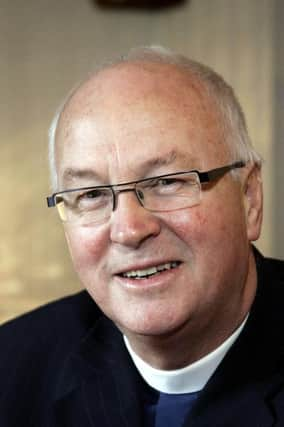Matthew and his Grandfather


Via his ‘Notebook’ column in ‘The Times’ on Monday, he paid tribute to his grandfather, who had died four years ago at the age of 98. On what would have been his grandfather’s birthday, Matthew listened to his favourite hymn on You Tube, Charles Wesley’s ‘O for a thousand tongues to sing’. His grandfather, he explained,’ had been a wonderful Christian, one of the few people whose example could make this rather hardened atheist acknowledge the great virtues of religious devotion and its many consolations.’
Syed went on to make two observations; first about the emotional power of religious music, and then that great individuals leave a powerful influence long after they have gone. He added, ‘I will take the memory of grandad’s example, his kindness and sense of duty , to my grave.’
Advertisement
Hide AdAdvertisement
Hide AdIn an age when Christian beliefs are often derided, believers can take heart from Syed’s remarks. For every Christian there is always an audience of observers. When Paul and Silas were imprisoned in Philippi for their faith, they were undeterred by what had happened to them. They prayed and sang hymns to God. As they sang, the historian tells us,’ other prisoners were listening to them’. (Acts 16;25). Their courage and faith were exerting an influence.
When Sir Walter Scott was building his country retreat at Abbotsford in the Scottish Borders, he arranged to have a little summer house erected at a corner of the garden, far removed from the main building. Why? Scott knew that sitting there of an evening, he could overhear his old servant, Peter, conduct family worship in his humble cottage nearby, and find the comfort he sorely needed. Peter may never have known how his humble devotional habit was strengthening his master in the struggles of life.
Henry Twells, who wrote the hymn, ‘At evening when the sun was set’, had a clergy colleague who was disheartened because, as he said, ‘If I have ever turned anyone to the paths of righteousness, that knowledge has been denied to me.’ But the day came when that colleague died, and as mourners were leaving the graveside, Twells noticed a stranger lingering nearby. He approached him, and asked, ‘Did you know my friend?’ ‘No’, said the stranger,’ I never spoke to him, but I owe him my soul.’
We can never measure the influence we exert. May the example of Syed’s grandfather encourage us all.